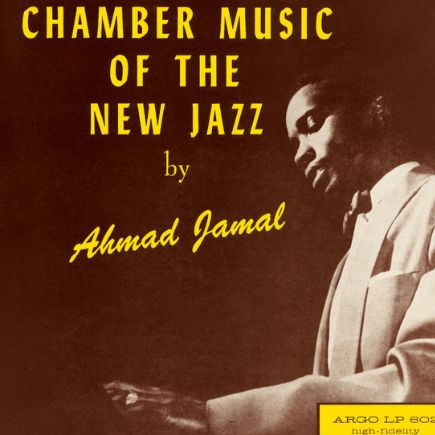All Of You: la déclaration amoureuse selon Porter
Une œuvre née de la scène musicale
Composée en 1954 pour la comédie musicale Silk Stockings, All Of You illustre avec éclat l’art de Cole Porter: raffinement mélodique, précision prosodique et sensualité subtilement suggérée. Le succès rencontré à Broadway, puis l’adaptation cinématographique de 1957 avec Fred Astaire et Cyd Charisse, inscrivent durablement la chanson dans le répertoire populaire. Elle devient dès lors une source privilégiée pour les interprètes de jazz, séduits par son équilibre formel et sa charge émotionnelle maîtrisée.
Une déclaration amoureuse sans réserve
À travers All Of You, Porter formule une déclaration d’amour totale, adressée à l’être aimé dans toutes ses dimensions, du corps à l’âme. La ligne mélodique, souple et élégante, soutient un texte d’une intensité assumée, où chaque détail devient objet de célébration. Cette exaltation culmine dans une formule emblématique qui résume l’esprit de la chanson: aimer l’autre dans sa globalité, sans conditions ni retenue.
Liberté artistique et héritage
Malgré les réserves de la Motion Picture Association, qui juge certaines allusions trop suggestives pour la morale dominante des années 1950, les paroles sont conservées intégralement. Ce choix témoigne de la capacité de Porter à défendre sa vision artistique tout en s’inscrivant dans les cadres du divertissement populaire. Par son élégance et sa modernité, All Of You demeure aujourd’hui un standard majeur du jazz et de la chanson américaine.
La modernité intimiste du trio d’Ahmad Jamal
Le 23 mai 1955, à Chicago, Ahmad Jamal enregistre avec son trio une version raffinée de All of You, standard composé par Cole Porter. Publiée sur l’album Chamber Music of the New Jazz, cette interprétation illustre à merveille la vision singulière du pianiste, qui privilégiait l’espace, le silence et la respiration musicale dans un contexte où le bebop dominait encore par sa densité rythmique et ses cascades d’harmonies.
Aux côtés de Jamal, Ray Crawford à la guitare et Israel Crosby à la contrebasse forment un ensemble d’une cohésion exemplaire, où chaque note respire et trouve sa place dans un équilibre subtil. Jamal choisit un phrasé clair et dépouillé, jouant sur la dynamique et la suggestion plus que sur l’abondance de notes. La guitare de Crawford, utilisée tantôt en ponctuation rythmique, tantôt en dialogue mélodique, contribue à l’élégance de l’ensemble, tandis que la contrebasse de Crosby soutient le trio avec une souplesse discrète mais déterminante.
Cette approche ouvrit la voie à une nouvelle manière de concevoir le trio jazz. Là où d’autres formations misaient sur la virtuosité et l’énergie, Jamal proposait une vision intime et architecturée, qui influencera profondément Miles Davis et bien d’autres musiciens.
All Of You: la declaración amorosa según Porter
Una obra nacida del escenario musical
Compuesta en 1954 para la comedia musical Silk Stockings, All Of You ilustra de manera ejemplar el arte de Cole Porter: refinamiento melódico, precisión prosódica y sensualidad sutilmente sugerida. El éxito en Broadway y la adaptación cinematográfica de 1957 con Fred Astaire y Cyd Charisse consolidaron la canción dentro del repertorio popular. A partir de entonces, se convirtió en una fuente privilegiada para los intérpretes de jazz, atraídos por su equilibrio formal y su intensidad emocional controlada.
Una declaración amorosa sin reservas
En All Of You, Porter formula una declaración de amor total, dirigida al ser amado en todas sus dimensiones, del cuerpo al alma. La melodía, flexible y elegante, sostiene una letra de gran intensidad, donde cada detalle es celebrado. Esta exaltación culmina en una frase emblemática que resume el espíritu de la canción: amar al otro en su totalidad, sin condiciones ni reservas.
Libertad artística y legado
A pesar de las objeciones de la Motion Picture Association, que consideró algunas alusiones demasiado sugerentes para la moral dominante de los años cincuenta, la letra se mantuvo intacta. Esta decisión refleja la capacidad de Porter para afirmar su visión artística dentro del entretenimiento popular. Por su elegancia y modernidad, All Of You sigue siendo hoy un estándar esencial del jazz y de la canción estadounidense.
La modernidad íntima del trío de Ahmad Jamal
El 23 de mayo de 1955, en Chicago, Ahmad Jamal grabó con su trío una versión refinada de All of You, estándar compuesto por Cole Porter. Publicada en el álbum Chamber Music of the New Jazz, esta interpretación ilustra de manera ejemplar la visión singular del pianista, que privilegiaba el espacio, el silencio y la respiración musical en un contexto donde el bebop aún dominaba con su densidad rítmica y sus cascadas de armonías.
Junto a Jamal, Ray Crawford a la guitarra e Israel Crosby al contrabajo conforman un conjunto de cohesión ejemplar, donde cada nota respira y encuentra su lugar en un equilibrio sutil. Jamal opta por un fraseo claro y depurado, jugando con la dinámica y la sugerencia más que con la abundancia de notas. La guitarra de Crawford, utilizada a veces como puntuación rítmica y otras como diálogo melódico, aporta elegancia al conjunto, mientras que el contrabajo de Crosby sostiene al trío con una flexibilidad discreta pero decisiva.
Este enfoque abrió el camino a una nueva forma de concebir el trío de jazz. Allí donde otras formaciones se apoyaban en la virtuosidad y la energía, Jamal proponía una visión íntima y arquitectónica que influiría profundamente en Miles Davis y en muchos otros músicos.
All Of You : la dichiarazione d’amore secondo Porter
Un’opera nata dalla scena musicale
Composta nel 1954 per la commedia musicale Silk Stockings, All Of You esprime pienamente l’arte di Cole Porter: raffinatezza melodica, precisione prosodica e sensualità appena suggerita. Il successo a Broadway e l’adattamento cinematografico del 1957 con Fred Astaire e Cyd Charisse consacrano la canzone nel repertorio popolare. Da quel momento diventa una fonte privilegiata per gli interpreti jazz, attratti dal suo equilibrio formale e dalla misura emotiva.
Una dichiarazione d’amore senza riserve
Con All Of You, Porter propone una dichiarazione d’amore totale, rivolta all’essere amato in ogni sua dimensione, dal corpo all’anima. La melodia, fluida ed elegante, sostiene un testo di forte intensità, in cui ogni dettaglio viene celebrato. Questa esaltazione culmina in una formula simbolica che riassume lo spirito del brano: amare l’altro nella sua interezza, senza condizioni né esitazioni.
Libertà artistica ed eredità
Nonostante le riserve della Motion Picture Association, che giudicava alcune allusioni troppo audaci per la morale degli anni Cinquanta, il testo rimase invariato. Questa scelta dimostra la capacità di Porter di difendere la propria visione artistica all’interno dell’intrattenimento popolare. Per eleganza e modernità, All Of You resta oggi uno standard imprescindibile del jazz e della canzone americana.
La modernità intimista del trio di Ahmad Jamal
Il 23 maggio 1955, a Chicago, Ahmad Jamal registrò con il suo trio una versione raffinata di All of You, standard composto da Cole Porter. Pubblicata nell’album Chamber Music of the New Jazz, questa interpretazione illustra in modo esemplare la visione singolare del pianista, che privilegiava lo spazio, il silenzio e la respirazione musicale in un contesto in cui il bebop dominava ancora con la sua densità ritmica e le sue cascate di armonie.
Accanto a Jamal, Ray Crawford alla chitarra e Israel Crosby al contrabbasso formano un insieme di coesione esemplare, in cui ogni nota respira e trova il proprio posto in un equilibrio sottile. Jamal sceglie un fraseggio chiaro ed essenziale, giocando sulla dinamica e sulla suggestione più che sull’abbondanza di note. La chitarra di Crawford, usata talvolta come punteggiatura ritmica e talvolta come dialogo melodico, contribuisce all’eleganza dell’insieme, mentre il contrabbasso di Crosby sostiene il trio con una flessibilità discreta ma determinante.
Questo approccio aprì la strada a un nuovo modo di concepire il trio jazz. Laddove altre formazioni puntavano su virtuosismo ed energia, Jamal proponeva una visione intima e architettonica, che avrebbe influenzato profondamente Miles Davis e molti altri musicisti.
All Of You: Porter’s declaration of love
A work born on the musical stage
Composed in 1954 for the musical Silk Stockings, All Of You exemplifies Cole Porter’s art: melodic refinement, prosodic precision, and subtly suggested sensuality. Its success on Broadway, followed by the 1957 film adaptation starring Fred Astaire and Cyd Charisse, firmly established the song within the popular repertoire. It soon became a favored source for jazz interpreters, drawn to its formal balance and controlled emotional depth.
An unreserved declaration of love
In All Of You, Porter delivers a total declaration of love, addressed to the beloved in all dimensions, from body to soul. The supple, elegant melody supports lyrics of confident intensity, in which every detail is celebrated. This exaltation culminates in an emblematic statement that captures the song’s essence: loving the other completely, without conditions or restraint.
Artistic freedom and legacy
Despite objections from the Motion Picture Association, which deemed certain allusions too suggestive for the prevailing morality of the 1950s, the lyrics were preserved intact. This decision highlights Porter’s ability to assert his artistic vision while remaining within popular entertainment. Through its elegance and modernity, All Of You remains an essential standard of jazz and American song.
The intimate modernity of Ahmad Jamal’s trio
On May 23, 1955, in Chicago, Ahmad Jamal recorded with his trio a refined version of All of You, a standard composed by Cole Porter. Released on the album Chamber Music of the New Jazz, this interpretation perfectly illustrates the pianist’s singular vision, privileging space, silence, and musical breathing at a time when bebop still reigned with its rhythmic density and cascades of harmonies.
Alongside Jamal, Ray Crawford on guitar and Israel Crosby on bass form an ensemble of exemplary cohesion, where every note breathes and finds its place within a subtle balance. Jamal opts for a clear and uncluttered phrasing, relying on dynamics and suggestion rather than an abundance of notes. Crawford’s guitar, used at times as rhythmic punctuation and at others as melodic dialogue, adds elegance to the whole, while Crosby’s bass supports the trio with discreet yet decisive flexibility.
This approach opened the way to a new conception of the jazz trio. Where other groups leaned on virtuosity and energy, Jamal proposed an intimate and architectural vision that would deeply influence Miles Davis and many other musicians.


